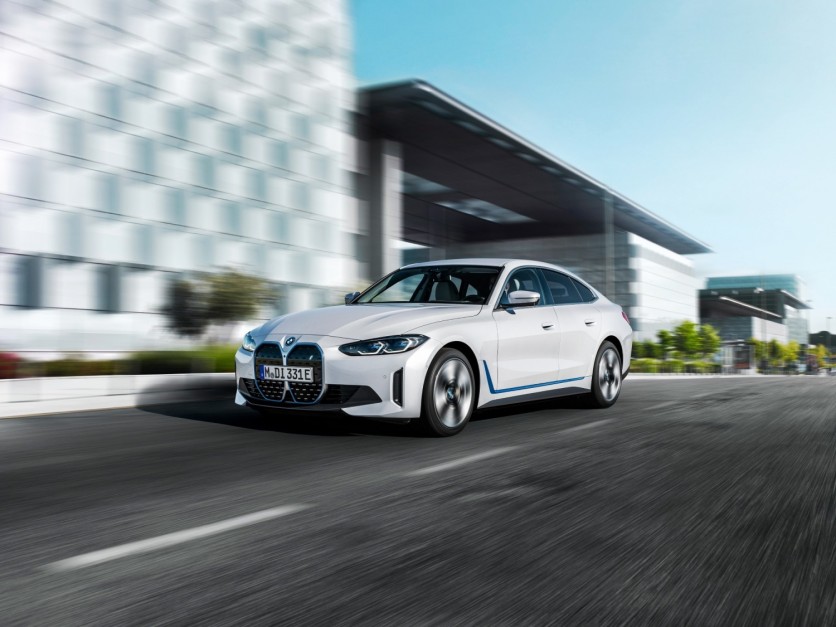BMW's i4 eDrive40 is the entry-level variant of the EV lineup, featuring only a single motor and rear-wheel drive electric goodness for a user, but it is the cheaper option that brings more range for the owner.
There are many variants of a single-car model, and going top-of-the-line may be the ideal one for better performance, features, and more, but that may not always be the case.
BMW i4 eDrive40: Cheaper Variant, Single Motor RWD

BMW's i4 has a lot of variants, but there are the cheaper ones featuring the eDrive and xDrive monikers, with the i4 eDrive 40 said to be a good value for money (via ArsTechnica).
It is the cheaper variant, but not the cheapest one, like the i4 eDrive35, which starts at $52,200 and will set users back around $57,300.
It is a single-motor, rear-wheel-drive variant of the i4 electric vehicle, offering 335 horsepower and a 5.4-second zero-to-60MPH acceleration.
More importantly, the BMW i4 eDrive40 features an estimated range of 282 to 301 miles, and it is considerably 30 miles more than the top-of-the-line i4 M50 which offers 227 to 269 miles for the dual-motor, all-wheel drive (AWD) variant which offers a 536 to 586 horsepower and a 3.7-second zero to 60.
Both EVs feature the same 84.3 kWh Li-On battery pack.
Buying the Lower EV Variant: Save Money, Get More?
In Ars' review, the lower EV variant of the BMW i4 EV shows how the cheaper variant gives a user more than $12,000 in savings (eDrive 40's $57,300 vs. i4 M50's $69,700 starting prices).
The spec sheets alone show that users can get around 30 more miles with the iDrive40 compared to the M50, but the downside is its performance, with its horsepower almost half of what the M50 can produce.
That said, this tradeoff guarantees more savings and ranges in exchange for better performance and more luxurious tech.
Electric Vehicles: Are They a Value for Money?
EVs are a massive investment now, especially as the transition to clean energy is demanded by most countries and their governments, especially in the US.
However, there are several doubters in the industry, and this came from the previous chief executive officer (CEO) and Chairman of Toyota, Akio Toyoda, who only predicts a 30 percent market share for EV sales despite its success in Norway and Sweden.
On the other hand, the market is now seeing several automakers like Ford who are skipping next-gen EV developments and prioritizing hybrid vehicles for now.
EVs are still cars, and they only replace the engine with electric motors and their source of power, fuel, with a battery's electric charge, among other sources.
At this time, EVs are indeed an investment as they are still made cheap and affordable, and most cars come with federal EV tax savings.
That being said, it is important to be wise in one's purchase, and more expensive does not necessarily mean better value for money, as the BMW i4 eDrive4 proved for drivers.
Related Article: China's BYD Could Apply Pressure to European EV Industry With Inexpensive Seagull Hatchback


![Apple Watch Series 10 [GPS 42mm]](https://d.techtimes.com/en/full/453899/apple-watch-series-10-gps-42mm.jpg?w=184&h=103&f=9fb3c2ea2db928c663d1d2eadbcb3e52)


